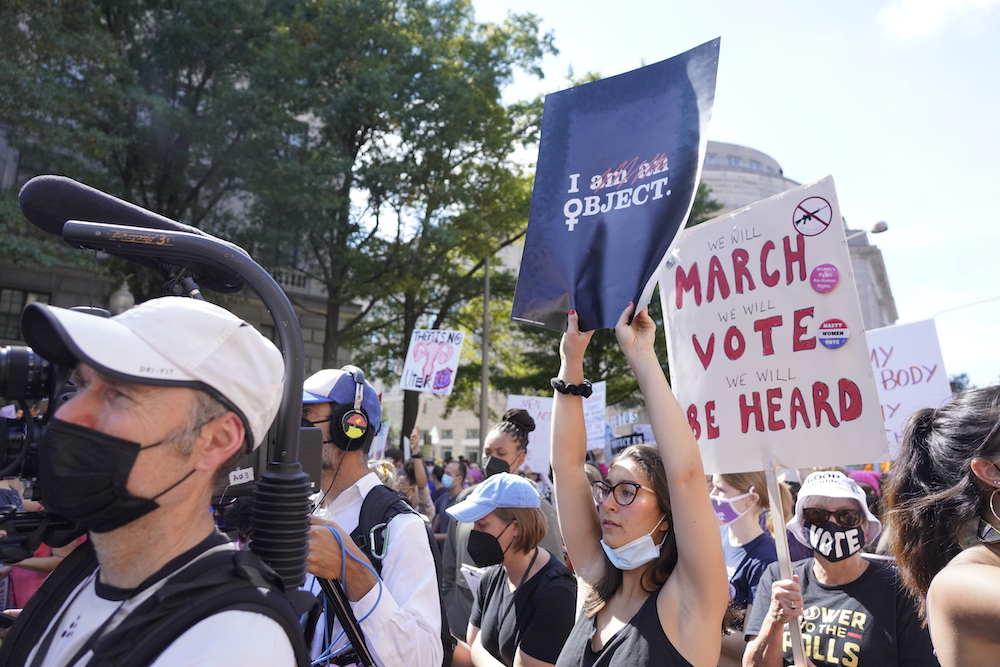WASHINGTON – “Terminating my pregnancy was not an easy choice, but it was my choice.”
Rep. Pramila Jayapal, a Democrat representing Washington state and an immigrant from India, along with two other congresswomen shared their abortion stories at a House committee hearing discussing recent abortion bans.
Jayapal first disclosed her abortion in 2019 in a New York Times Opinion article. Until then, she said at the hearing, her mother did not know about it.
“Some of it was because as an immigrant from a culture that deeply values children and in a society that still stigmatizes abortion, suicide and mental health needs, I felt shame that I should never have felt,” she said.
Jayapal said in an interview that AAPI – Asian American and Pacific Islanders – women experience some unique challenges in trying to get abortions that members of Congress need to learn about.
“Unfortunately, many AAPI women do face cultural stigma around the choice to have an abortion,” said Jayapal.
Studies show AAPI parents find discomfort in discussing sexual health with their children. Among 455 AAPI respondents ages 18 to 25, only 10% reported family as the source of sex and birth control education, according to a study by the University of California. As a result, one in three Asian women had used the calendar method for pregnancy prevention, twice the percentage of other racial and ethnic groups, according to the Centers for Disease Control and Prevention.
Activists said the cultural stigma not only comes from the traditional family values of Asian families but the historical silencing of Asian American women in American society.
“The model minority myth just makes it easier to say AAPI are okay,” said Da Hae Kim, a legal advocacy manager at the National Asian Pacific American Women’s Forum (NAPAWF), which advocates for AAPI reproductive rights. “If you don’t know that there is a problem, you’re not going to be able to come up with solutions. We’re stopped right out the gate.”
A study by the Guttmacher Institute, an organization with ties to Planned Parenthood that analyzes reproductive health issues, shows 6% of American women who get abortions identify as AAPI, and AAPI women make up 6.5% of women in the U.S.
NAPAWF filed an amicus brief to the Supreme Court, urging it to reject overturning the 1973 landmark Roe v. Wade ruling in favor of abortion rights and outlining the nuanced challenges AAPI women face in trying to obtain an abortion, including language, economic and cultural barriers.
AAPI women often cannot afford to obtain abortions out of state, advocates said. About 27% of employed AAPI women are essential workers, according to the Center for American Progress. The median annual income among different AAPI subgroups ranges from $30,000 to $70,000.
“They may not be able to fly out of state or drive out of state or even take a day off of work,” said Rep. Judy Chu, D-Calif.
In addition, activists said there is a need for culturally informed care that reaches out to all corners of the AAPI community.
“You cannot just provide the top three Asian languages and expect you’ve reached the AAPI community. We speak dozens of languages, even more dialects,” said Jennifer Wang, chief of strategic partnerships and research at NAPAWF.
Further, 34% of AAPI report limited English proficiency, which means they have difficulty communicating in English, according to a 2019 study published in the Journal of Immigrant and Minority Health.
NAPAWF members in Texas said that AAPIs face an information barrier because many cannot understand the ongoing legal battle surrounding Texas’s abortion bans.
“The uncertainty and the fear that it creates really just all compounds,” said Anvita Kandru, Texas outreach coordinator at NAPAWF.
Chu, the first Chinese American elected to Congress, has introduced the Women’s Health Protection Act in the House in each new Congress for a decade. The act would guarantee women’s right to an abortion by law rather than relying on the Roe v. Wade Supreme Court ruling. The House passed the measure in September, but the Senate has not yet taken it up.
“It did send a strong message out there that AAPI women can be a leader, not only for the AAPI community but actually for all of America on very important issues,” said Chu.


